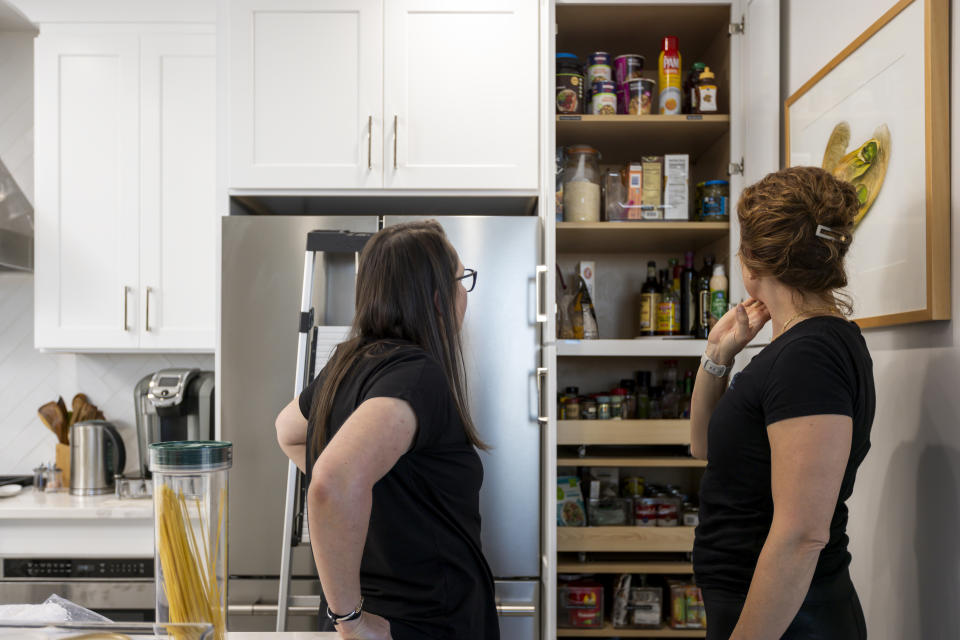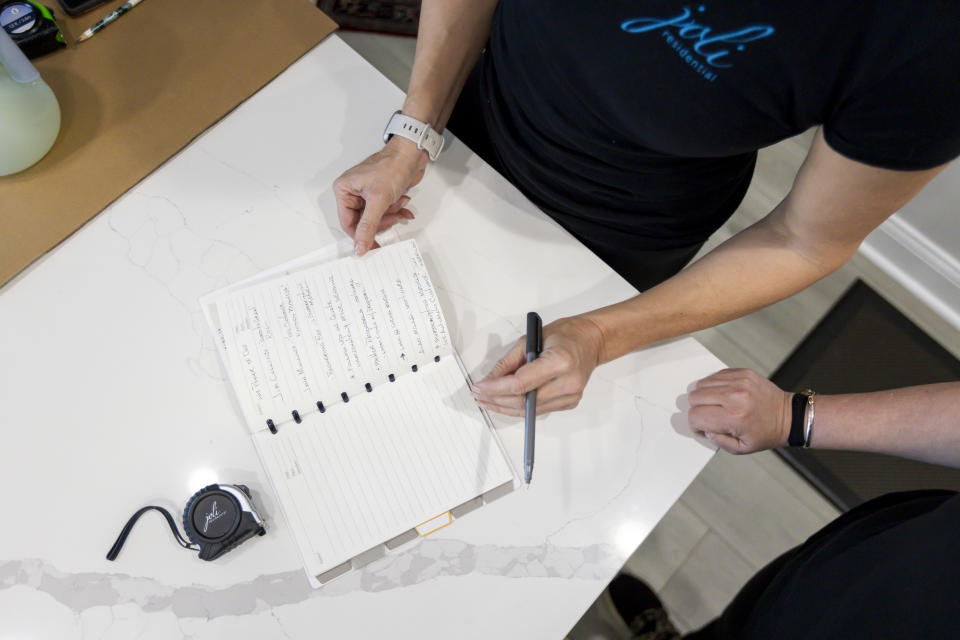Want to hand over your to-do list? A home concierge can help.
Drew McLellan and Danyel Newcom McLellan spend two weeks of every month on the road, running their consultancy for marketing agencies. Amid all the travel - plus caring for five pets, volunteering at the Colorado Puppy Rescue, and carving out time for dancing and Colorado Avalanche games - they don't have the energy to manage "all of the minutiae of life," says Drew.
He first enlisted a home concierge service to pitch in when he was a single dad who needed the "extra hands." But even with Danyel as his partner and his daughter now grown, Drew says he can't imagine forgoing the help.
He found Angeleen Newberg, founder of HandyGirl Concierge Inc. in Denver, through a Google search. He and Danyel buy blocks of hours (Newberg charges $49 per hour and offers packages of hours at a discount) and leave Newberg "a stash of money for when she has to spend on our behalf," for basic things such as dry cleaning, and more complicated matters such as finding someone to stitch the leather sofa ripped by one of the dogs.
"She'll do whatever you ask her to do - all the adulting," says Drew.
Despite the five-star resort connotations of the word "concierge," businesses such as HandyGirl are not necessarily geared toward the super rich. While some certainly count one-percenters among their clientele, many cater to stretched-thin professionals.
Some clients, like the McLellans, want help with daily tasks. But more commonly, people are looking for someone to manage a one-off project, such as packing up for a move, being home to accept a furniture delivery or decorating and running errands for the holidays. Those kinds of projects can start in the ballpark of a few hundred dollars.
Newberg founded HandyGirl in 2011 after realizing there was an unmet need in the Denver area for this type of service. The work, she says, "is very tailored to each person and what they are struggling with in life, and where their shortfall is."
In the beginning, before the rise of the gig economy, Newberg used Groupon to advertise her services, mostly helping people organize their spaces. Over time, the tasks have evolved to a "higher level," she says, and now the company functions more like "household managers." If someone wants their kitchen remodeled, for example, Newberg and her team get to work finding a contractor, getting estimates and "then making it happen."
Rachel Eisaman also started her business, Joli, in 2011, to cater to "families who don't necessarily want to hire a full-time person or maybe don't have the means to." Based in Atlanta, Joli's typical services include scheduling and coordinating general home maintenance (for instance, getting the gutters cleaned), holiday decorating and overseeing minor remodels and other home upgrades.
In 2014, the business expanded to include white-glove moving services. And while her client list has also expanded to include pro athletes and philanthropists, Eisaman says Joli still does plenty of work for more typical professionals. Her business offers a range of pricing options, including a monthly subscription for $500, and one-off fees between $125 and $200 an hour for simpler tasks.
Many concierge businesses stray into the realm of professional organizing and minor interior design, too. Julianna Melamed's company, Full Service Living in New York City, is among them. Melamed, who charges $150 per hour with a two-hour minimum, says her services come much cheaper than an interior designer's. "It's functional styling," she says. Such projects might include installing wallpaper for a client, or cleaning out and organizing a closet.
Jennifer Shtutman, a mom of two who works full-time for a luxury fashion brand, found Full Service Living on Instagram while searching for someone to help organize her kitchen. Shtutman's days often start with early morning international calls and end with work dinners in Manhattan.
So she knew she'd never get around to tackling the job herself. Melamed, on the other hand, worked through the entire space in about five hours (not counting a two-hour initial consultation): sorting and decluttering, removing shelving to create more space, adding new storage solutions, and labeling everything.
The expense, says Shtutman, was more than worth it. "I just kind of stand in front of my pantry and don't move from there for a few minutes every day," she says. "I'm so happy I did it."
Vlad Rukiter and his wife hired Melamed for a similar job. They wanted to transition their 6-year-old's room into a "big girl's room" before school started last fall, says Rukiter, a creative director for an adtech company. But he and his wife didn't know where to begin; the clothing was so disorganized, they didn't know what their daughter had or what fit, and there was too much stuff without a designated home winding up on the floor.
Melamed organized the space and found better-functioning furniture for it, sticking to the family's $8,000 budget - which included the cost of her services, as well as new bookshelves, a desk and other storage solutions.
The clothing reorganization, in particular, has had a major impact, Rukiter says. Melamed not only "transformed the room," but did so in a way that will enable his family to keep it "clean and organized for years to come."
- - -
Stacey Lastoe is a writer in Brooklyn who covers lifestyle topics.
Related Content
Violent political threats surge as 2024 begins, haunting American democracy
New battery material that uses less lithium found in AI-powered search
Josh Harris just took a smart step away from the Commanders’ sorry past






